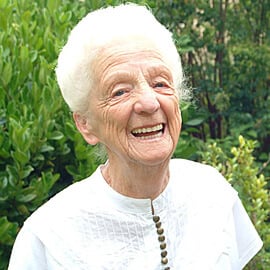If you'd rather poke a hot stick in your eye than try resistance training then you're missing out on your ticket to a better quality of life.
You've heard it all before, right? You know resistance training builds muscle strength. You understand it improves flexibility, lowers body fat, and can contribute to reducing blood pressure and back pain. But did you consider the practical benefits such as being able to carry the groceries home, climbing a flight of stairs to admire a spectacular view, even giving your golf or tennis game a boost?
The adage ‘move it or lose it' particularly applies when we get older and maintaining our strength is an important ingredient in all of us living well for the long haul.
A recent Canadian study, published in the journal PLoS One, adds weight to the argument by showing regular resistance training can actually reverse signs of ageing in muscles by making your mitochondria (the molecular machinery powering muscle cells) function more efficiently - at a cellular level, you can literally become younger. In short, the authors found it's never too late to start exercising to reap the benefits and twice weekly resistance training sessions was enough to have a positive impact. So perhaps it's time to remove that hot stick from your eye and contemplate incorporating a resistance training program into your weekly exercise routine.
Getting started
The first step is getting the tick of approval from your doctor. A good medical check-up will determine your health status and form the basis from which you can build a program. If you've never participated in resistance training before, it is strongly recommended you seek guidance from a physiotherapist or personal trainer to get the best and safest results.
Di Huxley, 53, runs Dinamic Fitness, a personal training business specialising in programs for the more mature. She says the idea of using weights can be understandably intimidating for many people so the emphasis should be on enjoyment and variety. "Where and how you do your strength training should be an individual choice," she says. "It will only work if you feel happy and comfortable. If you are a social person and used to taking part in group activities, the gym, hall, or even the park with some friends would be perfect."
But Di says if you are not so confident, you could consider having a personal trainer come to the house to take you through a personalised program designed around everyday activities and equipment you can utilise from around the home. You don't need to have any special equipment," she says. "Sometimes the best exercise program is one designed around your day-to-day activities and using items like cans of soup and bags of rice from the pantry."






